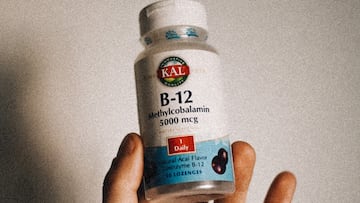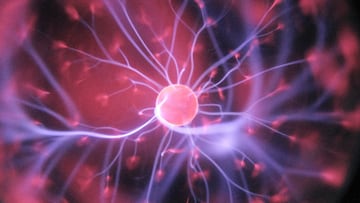HEALTH
What is vitamin B12 good for? Benefits and drawbacks
We know, with the help of an expert, what function this substance performs in the body and when and how it should be taken.

Due to an unbalanced diet or factors such as stress, humans often fail to reach the minimum recommended amount of necessary vitamins. In the case of vitamin B12, furthermore, a deficiency could become a serious problem.
Vitamin B12 is “transcendental” for the formation of red blood cells and the maintenance of the central nervous system, explains María Aguirre, nutritionist at BluaU de Sanitas. In addition, it plays a role “key” in the metabolism of cells and in the synthesis of DNA and RNA, she adds.

Given the role that this substance plays in the body, Aguirre affirms that it is “important” to ensure an adequate supply through a balanced diet that includes foods such as meat, fish, dairy products and eggs, or through supplements in case of medical recommendation.
Foods with vitamin B12
As the nutritionist details, vitamin B12 is mainly produced by microorganisms present in the soil and in the gastrointestinal tract of animals such as cows or sheep. These microorganisms synthesize it from compounds such as cobalt and other nutrients found in the environment. Thus, animals that consume foods with these microorganisms or that graze on soils rich in cobalt absorb vitamin B12 and store it in their tissues and organs.
When humans consume animal products that contain vitamin B12, this substance is absorbed in the small intestine and then transported to the liver, where it is stored. From there, it is distributed to the tissues. Foods that contain vitamin B12 are:
- Meats: Liver is an “excellent” source of vitamin B12, details Aguirre. Additionally, lean meats such as beef, chicken, and pork also contain this substance.
- Fish: salmon, trout and tuna are rich in this vitamin.
- Dairy: Milk, cheese and yogurt are “good sources” of vitamin B12.
- Eggs: contain “significant” amounts of this substance.
However, for those who follow a vegetarian or vegan diet it may be “more difficult” to obtain the necessary vitamin B12 from natural sources, warns the nutritionist. In these cases it is “important” to consider the use of supplements or fortified foods.
Excess vitamin B12
As we have already seen, the benefits of vitamin B12 are numerous, since its function is vital in the proper functioning of the body. However, an excess of vitamin B12 can cause “mild” side effects such as headache, nausea, vomiting, diarrhea or upset stomach. Of course, they are usually “very rare” symptoms, indicates the nutritionist.
Additionally, in “extremely rare” cases and in people “with certain medical conditions” such as kidney disease, excessive accumulation of vitamin B12 in the body can cause:
- Disorders in the nervous system,
- Alterations in blood coagulation,
- Cardiovascular complications.
Lack of vitamin B12
A lack of vitamin B12 can lead to “consequences such as megaloblastic anemia (abnormally large red blood cells) or irreversible neurological damage.” To prevent this from happening, we must take into account that The recommended daily dose of vitamin B12 “varies depending on age, sex and other individual conditions,” says Aguirre.
For “most adults,” the recommended daily intake is at least 2.4 micrograms (mcg), although during pregnancy and breastfeeding these needs may increase slightly to 2.6 and 2.8 mcg, respectively. Vitamin B12 deficiency can result in the following common signs:
- Fatigue,
- Muscle weakness,
- Numbness or tingling in the hands and feet,
- Memory and concentration problems,
- Changes in mood (depression, irritability, etc.).





